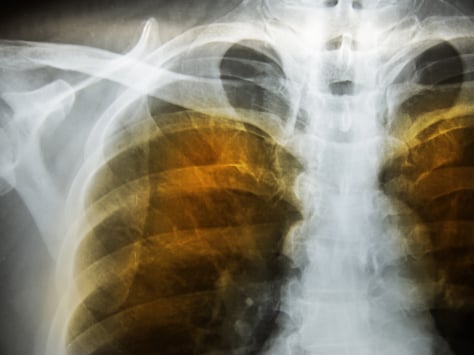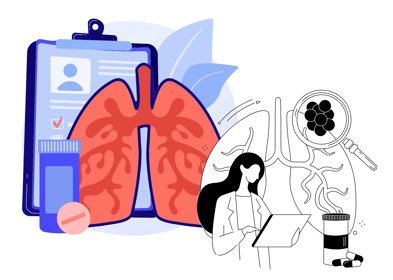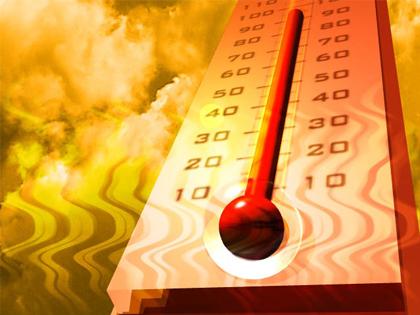
As the scorching summer sun reaches its peak and humidity levels soar, many of us find ourselves seeking refuge in the comfort of air-conditioned spaces. While the heat and humidity can be challenging for everyone, individuals living with chronic obstructive pulmonary disease (COPD) face unique burdens during the summer months.

COPD, a progressive lung disease, encompasses chronic bronchitis and emphysema, leading to breathing difficulties and reduced lung function. In this blog, we will explore how heat, humidity, and summer ailments such as pollution can exacerbate the symptoms of COPD, impacting the quality of life for those affected.
COPD Explained
Chronic obstructive pulmonary disease (COPD) is a prevalent and progressive lung disease that affects millions of people worldwide. It encompasses chronic bronchitis and emphysema, which lead to persistent airflow limitation and breathing difficulties. COPD is primarily caused by long-term exposure to harmful substances, such as cigarette smoke, air pollution, and occupational hazards.
.png?width=457&height=327&name=COPD%20coughing%20graphic%204%20(1).png)
This debilitating disease affects individuals of all ages, with a higher prevalence in individuals over the age of 40 who have a history of smoking or exposure to environmental pollutants. However, it's important to note that COPD can also occur in non-smokers due to genetic factors or exposure to secondhand smoke and indoor air pollution.
Is there a Cure for COPD?

COPD is a chronic condition that cannot be cured. However, with proper management and treatment, individuals with COPD can lead long and healthy lives. The goal of treatment is to control symptoms, prevent exacerbations, and improve overall quality of life. This is achieved through a combination of medication, lifestyle changes, and pulmonary rehabilitation programs. While the damage to the lungs caused by COPD is irreversible, treatment focuses on slowing disease progression, managing symptoms, and reducing the impact of exacerbations.
COPD Treatment
By adhering to prescribed medications, such as bronchodilators and anti-inflammatory drugs, individuals with COPD can alleviate symptoms and improve lung function. Pulmonary rehabilitation programs play a crucial role in COPD management, offering education, exercise training, and psychological support to enhance overall well-being and functional capacity.

Furthermore, quitting smoking and avoiding exposure to environmental pollutants are essential steps in managing COPD effectively. These lifestyle changes can slow down the disease progression and reduce the risk of exacerbations. Vaccinations, including the annual flu vaccine and pneumococcal vaccine, are also recommended to prevent respiratory infections that can worsen COPD symptoms.
So, while COPD cannot be cured, it can be effectively managed through a comprehensive treatment approach. With proper medical care, lifestyle modifications, and ongoing support, individuals with COPD can lead fulfilling lives, maintaining their lung function and quality of life for many years.
Early diagnosis, adherence to treatment regimens, and regular communication with healthcare professionals are key to managing COPD and ensuring the best possible outcomes for those affected by this chronic respiratory condition.
What the Summertime Means for your COPD

Every year, the summer season brings a unique set of challenges for individuals living with COPD. The combination of heat, humidity, and other environmental factors can significantly impact their respiratory health and overall well-being.
In this blog, we will delve into the ways in which summer affects people with COPD, including the impact of heat and humidity on breathing, the exacerbating effects of pollution, and the specific summer ailments that can worsen COPD symptoms.
By understanding these influences, we can explore effective strategies and preventive measures to help individuals with COPD navigate the summer months and maintain their lung health and quality of life.
The Relationship Between Heat, Humidity, and COPD
.png?width=530&height=379&name=COPD%20graphic%202%20(1).png)
Heat and humidity can pose significant challenges for individuals with COPD due to their direct impact on respiratory function. The increased heat in the atmosphere causes blood vessels to dilate, which, in turn, affects the airways.
For individuals with COPD, this dilation can lead to inflammation and narrowing of the air passages, making breathing more difficult. Moreover, high humidity levels can worsen breathlessness by impeding the evaporation of sweat, hampering the body's ability to cool down efficiently.
Heat and humidity can also contribute to increased respiratory rates, as the body tries to compensate for the added stress on the lungs. Rapid breathing can lead to a sensation of breathlessness, further exacerbating the discomfort experienced by individuals with COPD.
Additionally, excessive sweating caused by high temperatures can result in dehydration, which can affect the viscosity of mucus in the airways, making it even more challenging to clear.
Summer Ailments: Pollution and its Impact on COPD

In many urban areas, summer brings not only heat and humidity but also increased air pollution. Pollution, particularly from vehicular emissions, industrial activities, and forest fires, can have severe consequences for individuals with COPD.
The presence of pollutants, such as fine particulate matter (PM2.5), ozone (O3), and nitrogen dioxide (NO2), can trigger COPD exacerbations and worsen symptoms.
Particulate matter refers to tiny particles suspended in the air, which can be inhaled deep into the lungs. These particles irritate the airways, causing inflammation and exacerbating breathing difficulties for individuals with COPD.
High levels of ozone, a harmful gas formed through chemical reactions between pollutants and sunlight, can damage lung tissue and increase airway resistance, further compromising respiratory function. Similarly, nitrogen dioxide, primarily released from burning fossil fuels, can inflame the airways, triggering coughing, wheezing, and shortness of breath.
Preventive Measures for Coping with Summer Challenges

While the summer heat, humidity, and pollution can be burdensome for individuals with COPD, there are several preventive measures and strategies to alleviate their impact:
Staying Indoors:
Spending more time indoors in air-conditioned or well-ventilated environments is crucial for individuals with COPD during the summer. It helps to avoid direct exposure to extreme heat and humidity, which can worsen respiratory symptoms. By staying indoors, individuals can maintain a more stable and comfortable environment for their lungs, reducing the strain on their respiratory system.
Air Purification:
Investing in high-quality air purifiers is important for managing COPD in the summertime. These devices help filter out indoor pollutants, including allergens, dust, and fine particulate matter. By improving indoor air quality, air purifiers reduce the risk of COPD exacerbations triggered by pollution, allowing individuals to breathe cleaner air and minimize the impact of external irritants.
Staying Hydrated:
Maintaining proper hydration is essential for individuals with COPD, especially in hot and humid weather. Drinking plenty of fluids helps keep the mucus in the airways moist, making it easier to clear and reducing the risk of mucus plugs or blockages. Proper hydration also prevents dehydration, which can lead to thicker mucus and increased breathing difficulties.
Medication Compliance:
Adhering to prescribed medication regimens, including inhalers and bronchodilators, is vital for managing COPD symptoms in the summertime. Regular medication use helps control inflammation, open up the airways, and improve lung function. By following the prescribed regimen consistently, individuals can better manage their symptoms, reduce the frequency of exacerbations, and cope with the challenges of heat and humidity.
Avoiding Peak Pollution Hours:
Being aware of local air quality levels and avoiding outdoor activities during peak pollution hours is crucial for individuals with COPD. During these periods, pollution levels, including particulate matter and ozone, tend to be higher, posing a greater risk of triggering respiratory symptoms. By planning outdoor activities for times when pollution levels are lower, individuals can minimize their exposure to harmful pollutants and reduce the likelihood of exacerbations.
Protective Masks:
Wearing properly fitted masks rated for filtering fine particulate matter when stepping outside during periods of high pollution is an important measure for managing COPD in the summer. Masks act as a barrier, preventing inhalation of harmful pollutants and reducing the risk of respiratory irritation. They provide an additional layer of protection and can significantly decrease the impact of external triggers on lung health.
Regular Exercise:
Engaging in regular exercise is beneficial for individuals with COPD throughout the year, including the summer months. Exercise helps improve overall lung function, strengthens respiratory muscles, and enhances cardiovascular fitness. By participating in exercise routines tailored to their capabilities, individuals can enhance their ability to cope with increased respiratory demands during hot and humid weather. Regular exercise also contributes to better overall well-being and quality of life for individuals with COPD.
Conclusion

The summer season brings its own set of challenges for individuals with COPD, including the heat, humidity, and increased pollution levels.
Understanding the impact of these factors on respiratory function is crucial for managing COPD effectively. By taking proactive measures and adopting preventive strategies, individuals with COPD can mitigate the burden imposed by the summer season.
It is also important to stay connected with healthcare providers for regular check-ups, guidance on medication use, and to address any concerns regarding COPD management during the summer months. With proper care and attention, individuals with COPD can enjoy a better quality of life, even in the face of summer's challenges.






.png?width=457&height=327&name=COPD%20coughing%20graphic%204%20(1).png)



.png?width=530&height=379&name=COPD%20graphic%202%20(1).png)


